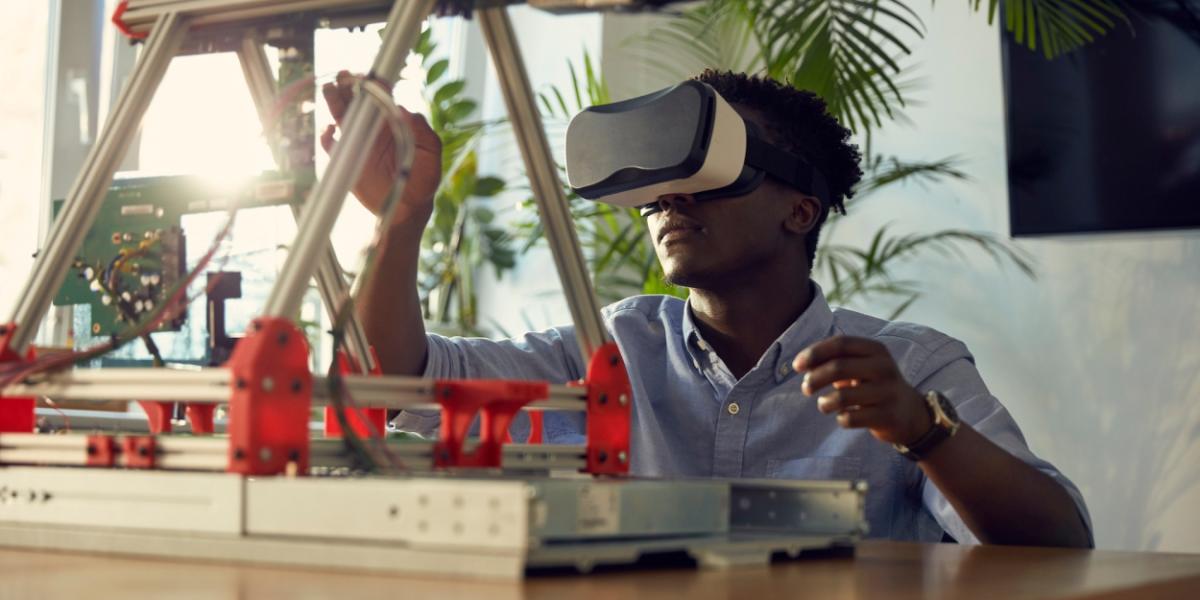Equity Requires Doing a Little Bit of Good, Wherever You Are
by Nicola Acutt
Originally published on VMware News & Stories
Once you see inequity, there’s no way to unsee it. The first time I really understood this was during my first year at the University of California, Berkeley. College in America was a culture shock—so different from the life I’d left behind in Johannesburg, South Africa. But what surprised me most was just how much my classmates knew of and cared about what was going on back home.
Berkeley had been at the center of America’s anti-apartheid movement in the 1980s, with protests held on Sproul Plaza against South Africa’s racial segregation policy. I had spent my entire life up until that point in Johannesburg, and I had never really grappled with the injustice playing out in my own country. Going to Berkeley rocked my world view.
I had grown up in a bubble. And by the next time I returned to South Africa, that bubble had burst. I saw my homeland through new eyes. I still loved my country—but I now understood the systemic injustice for what it was. How it needed to change. And how I needed to change with it too.
That experience taught me that inequity thrives in darkness and misinformation. It feeds off fear. It is amplified by systems of all kinds. So when people ask me why equity is important to me and why it plays such a prominent role in VMware’s 2030 Agenda, the answer is simple: because it has to. Because combatting inequity is a shared responsibility. Because there is no such thing as a sustainable future without an equitable future.
Equity, of course, comes in different shapes and forms. It can be a complex concept with multiple dimensions. VMware’s own origin story can be traced back to one such dimension: digital equity. Our co-founders laid out a simple vision: that our technology free people and businesses from the digital constraints holding them back from reaching their full potential.
VMware’s approach to equity today is rooted in this simple idea. And today we’re going much further by striving to embed equity into every part of our business, from the products we make to the outcomes we create for all our stakeholders.
Our efforts span from the individual to the organization and industry. It starts with creating a diverse and inclusive work environment that allows every person in our organization to feel a sense of belonging and part of a community. Creating this environment is a collective effort that we empower every employee to take part in. For example, our numerous geographic- and identity-based employee groups called PODs (Power of Difference) help to connect, network and grow our diverse community of leaders.
Responsibility also spans to the team. One of the most profound insights I gained from our very first diversity training at VMware was that unconscious biases are part of the human condition. Even when you recognize them and work to combat them, they can be persistent. As leaders we therefore must create systems that short circuit these biases to drive more equitable outcomes in our teams. This is where VMware is concentrating a lot of our efforts, particularly when it comes to how we recruit, hire and promote people.
Expanding outward, we have commitments to driving equity as an organization and within our industry. As a big company that makes a lot of purchasing decisions each year—and by prioritizing supplier diversity through our Responsible Sourcing program—we can intervene in the procurement system and direct our dollars to have an impact in our communities. As part of our 2030 Agenda, for example, we have committed to spending a cumulative $1.5 billion with diverse suppliers by 2030.
At the product level, we’re making equity a desired outcome for our solutions by focusing on accessibility. And at an industry level, our technology like Anywhere Workspace solutions are supporting social equity by enabling people to work where and how they choose and access greater opportunities through remote and distributed work.
Finally, we recognize that technology is driving fundamental changes in the world and that it has the potential to serve as a bridge—or as a wedge—between people. That’s why we’ve made the conscious decision to do our part to be a bridge—using our expertise and technology to promote digital access and transformation for communities that need it. We’re doing things like providing students and women returning to the workforce with digital skills training, and helping nonprofits design and build technology that helps them accomplish their missions.
VMware—like all companies and organizations—still has a long way to go before we can achieve true equity. Equity work is a constant practice that requires ongoing learning and action. And even with all the good work we’re doing, we recognize that we most likely still have unconscious biases and areas we could improve. But we are committed to remaining curious—to being part of a community of learning that is constantly asking questions, testing assumptions and striving to get better.
In the end, the only way to make progress against inequity is through dedicated, consistent and collective action. There’s a quote I like from Desmond Tutu, one of the world’s most prominent activists and a key figure in finally ending apartheid. He said, “Do your little bit of good where you are; it’s those little bits of good put together that overwhelm the world.”
As I reflect during this time of year, I can say with confidence that people at VMware are doing their little bit of good. There is certainly more to do. And my great hope is that our actions can inspire—and enable—others to do the same.



